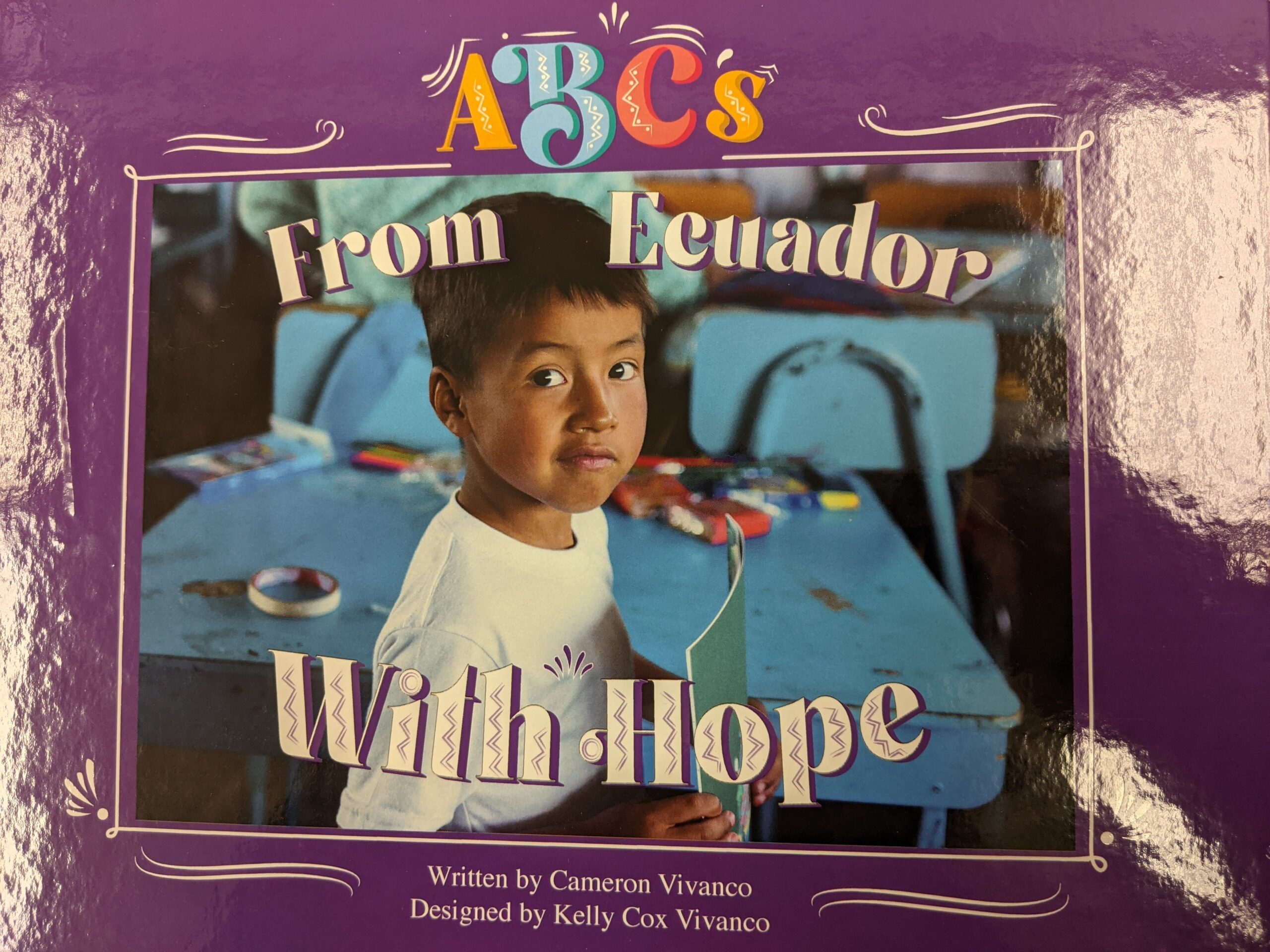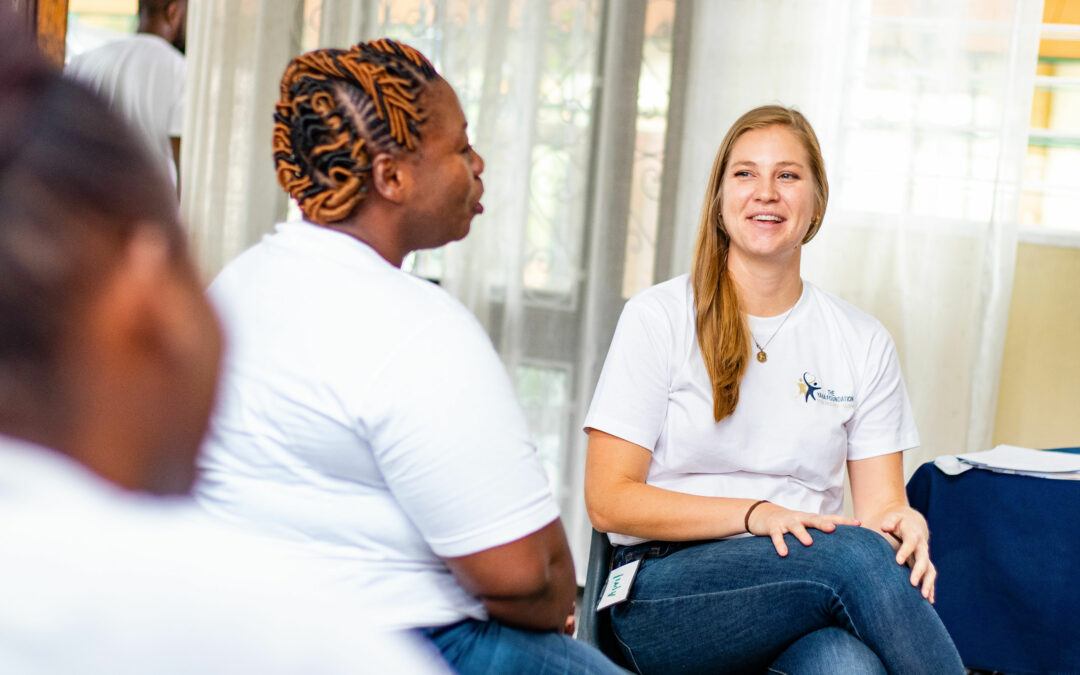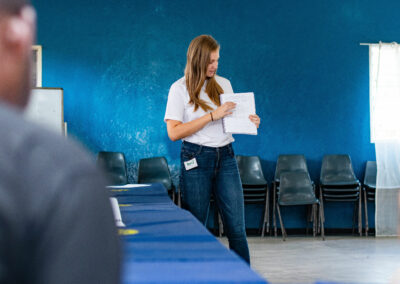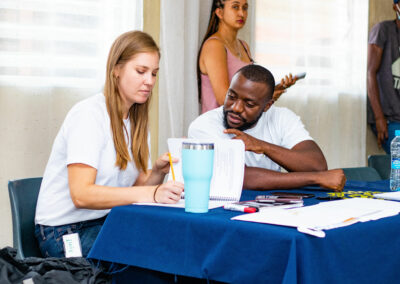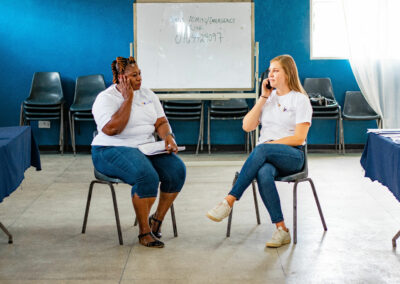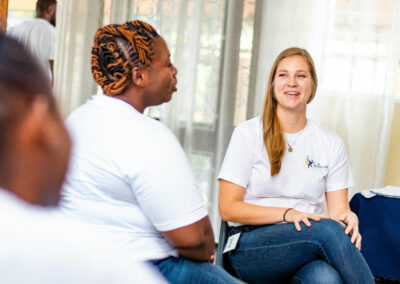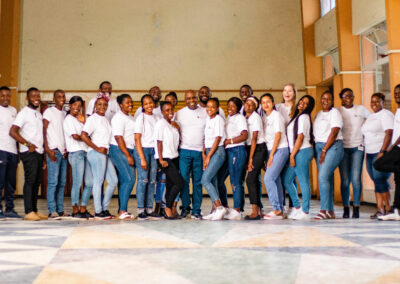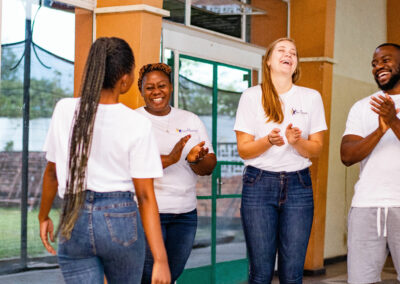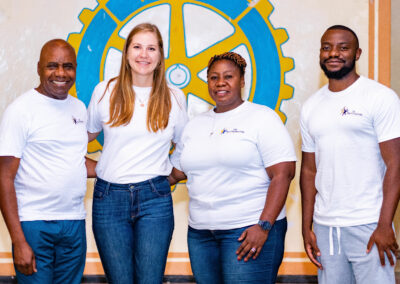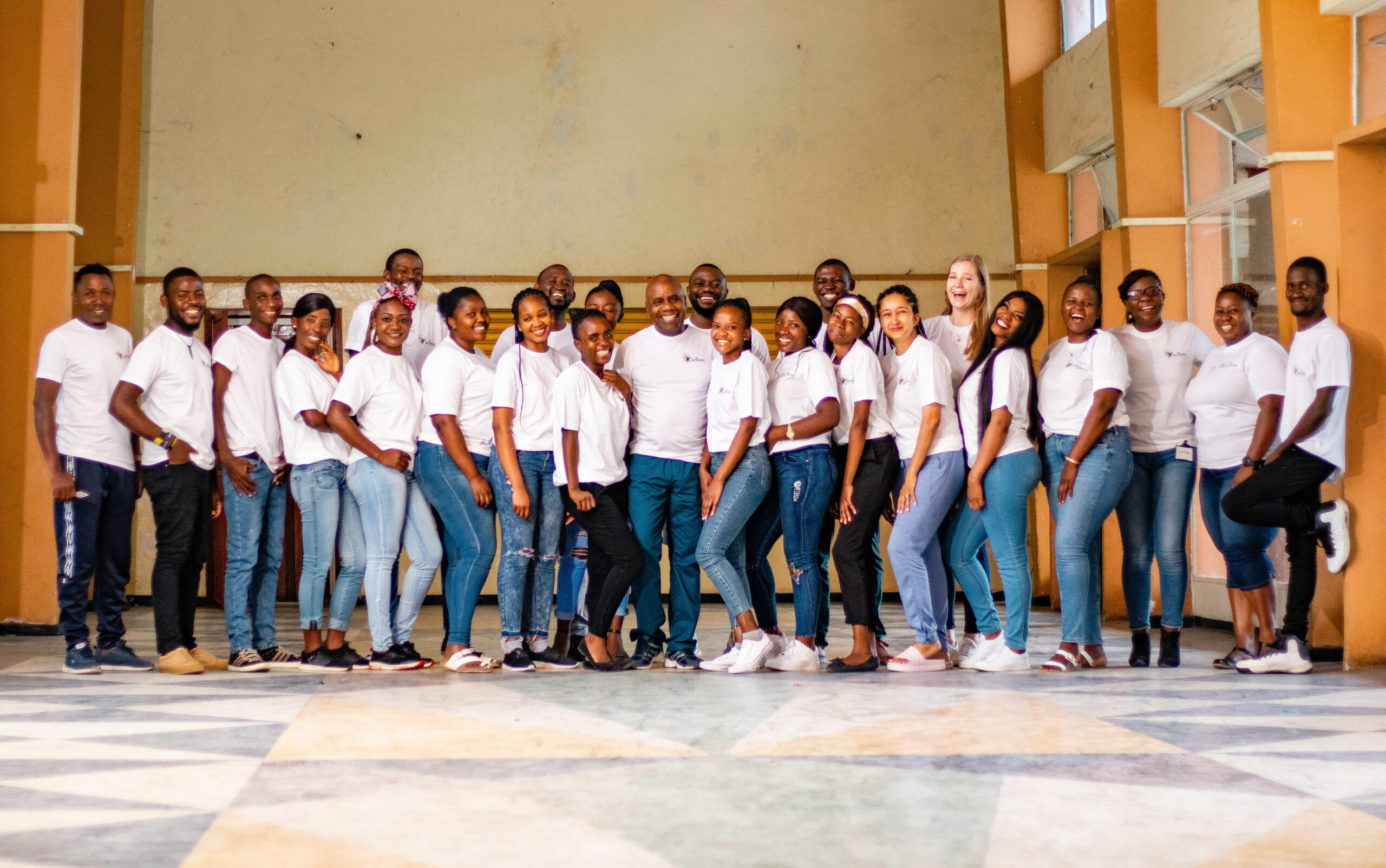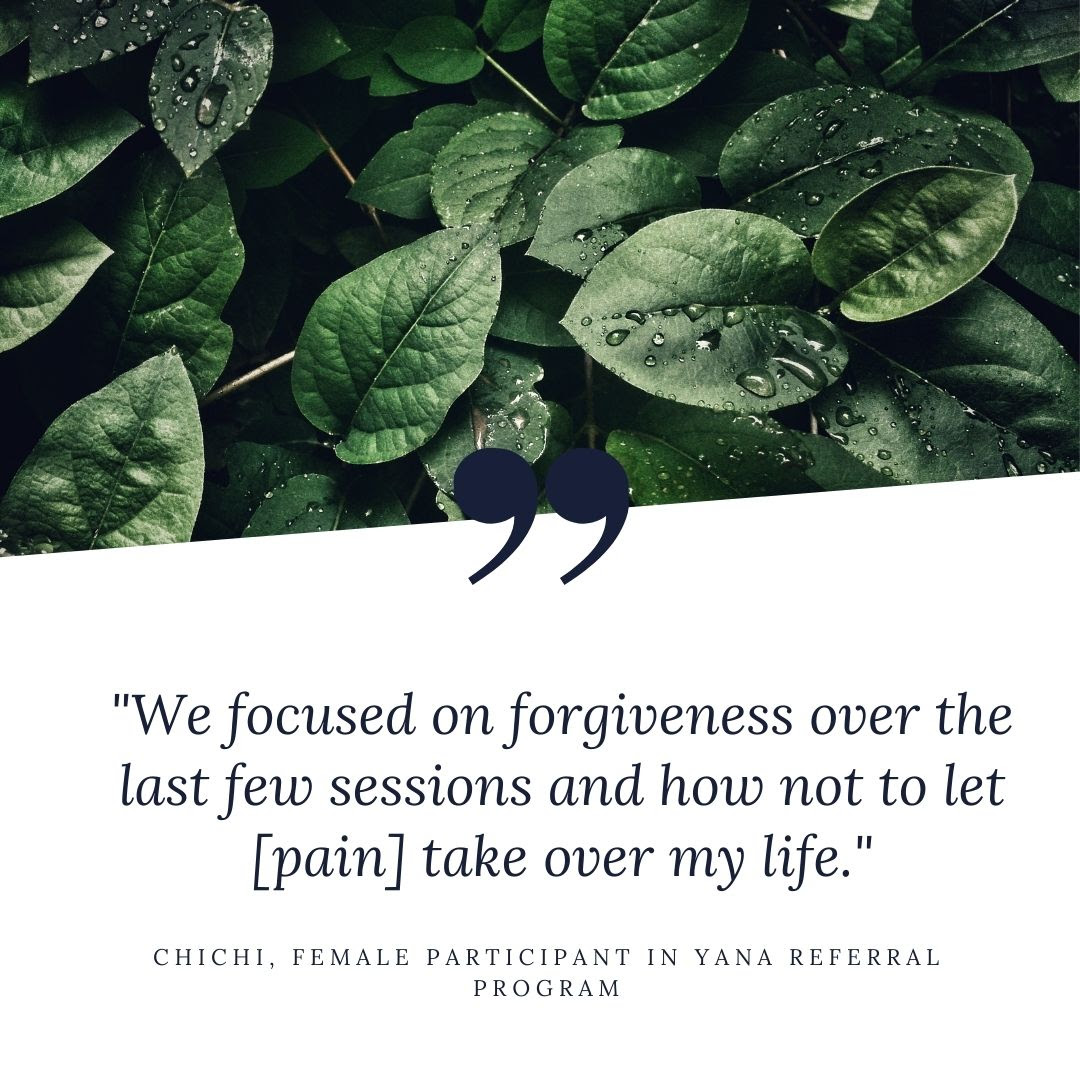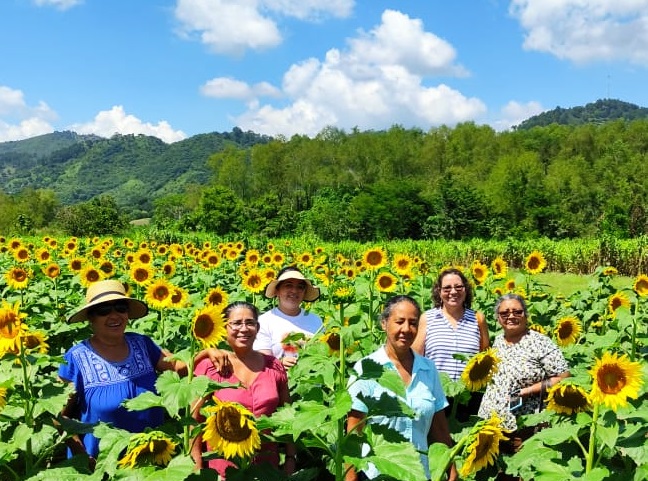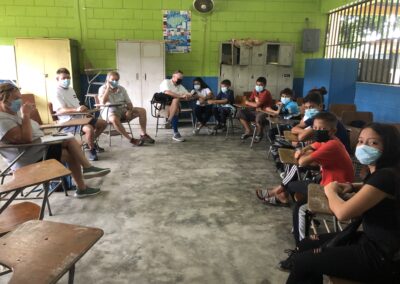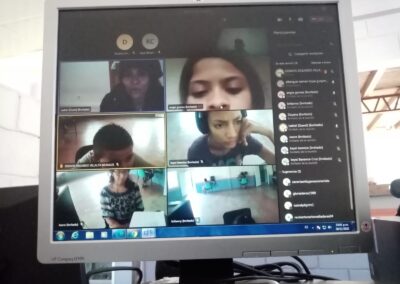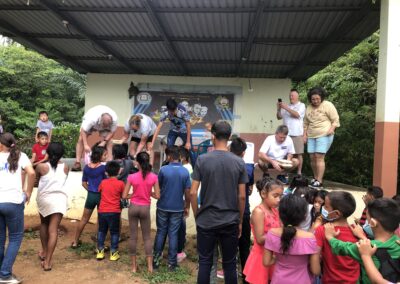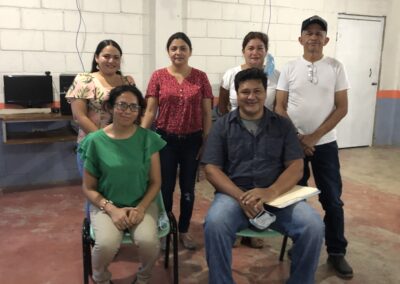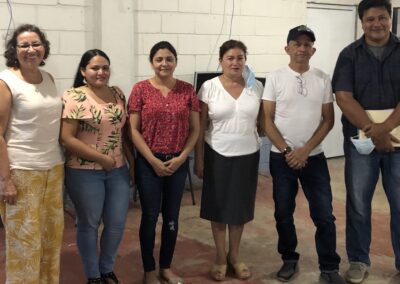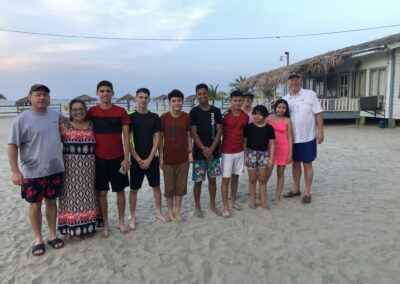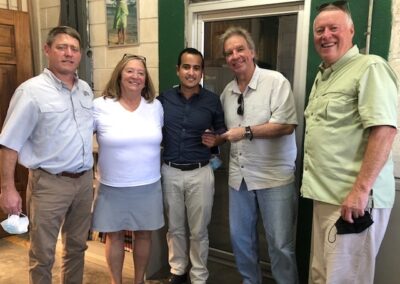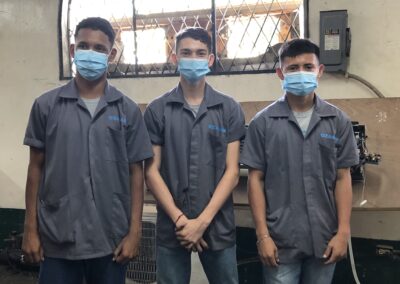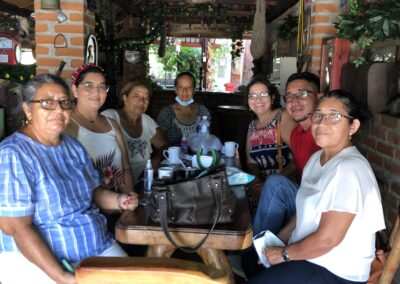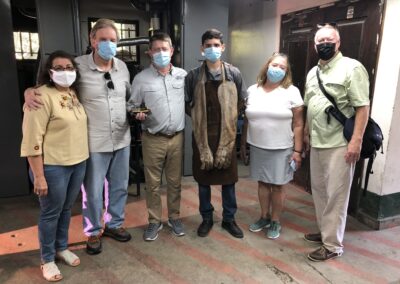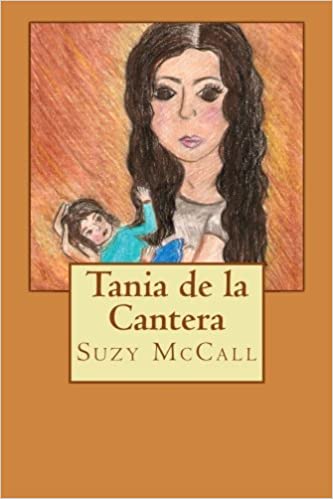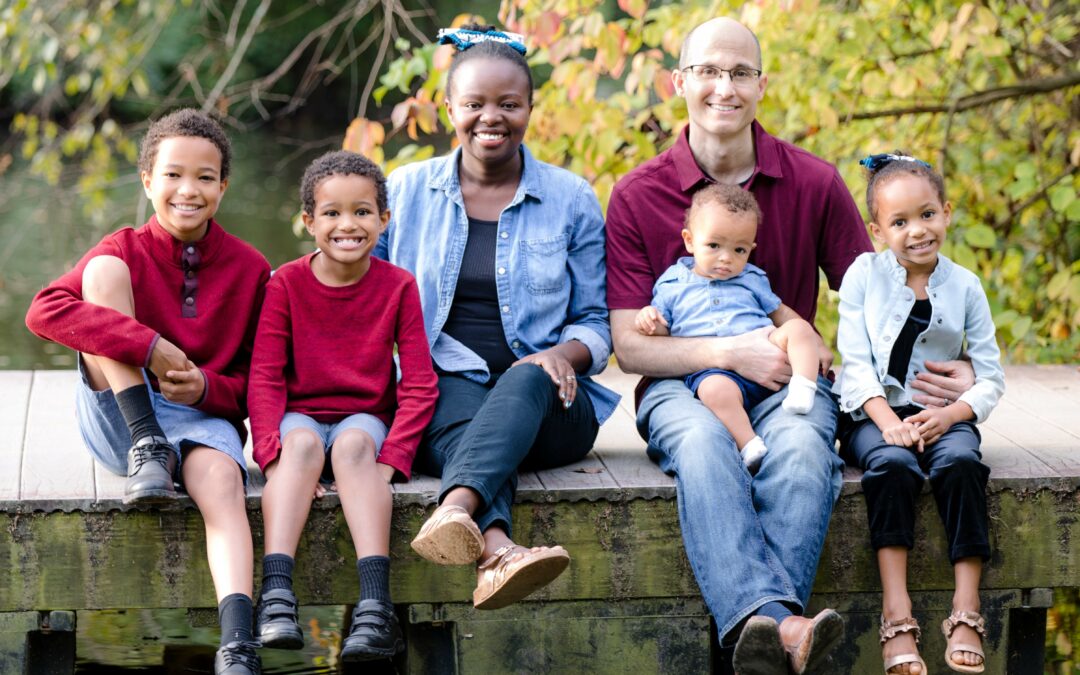
Stories from Kenya Connection: A Ministry of Lucy and David Chaves
Introduction from Missionary Lucy Chaves
(serving Kenya; based in Virginia with her husband, Associate Missionary David Chaves):
As program director at Kenya Connection, I am responsible for researching, planning, and implementing programs for the ministry. I also oversee the staffing needs for the departments we have by recruiting suitable candidates (HR management in a way). My favourite role is that of mentoring young African missionaries. We meet, share the word of God, pray together and challenge each other in our walk (we thank God for Zoom :)). We welcome friends to join us every Thursday for an hour of Bible study and praying together. Most of the staff members we have feel strongly called to serve the Lord through the journey of discipleship. Below is a report and stories from our ministry this past spring, written by James Were and Mwangi Kabeberi.
James is the Scholarship and Development coordinator for Kenya Connection. He is an alumnus of Akiba school and was taught by Dave in high school. We are actually happy but sad that James will transition soon, as he has been accepted for an MBA course at James Madison University. We shall be happy to see him here in the States but we shall dearly miss working with him. He has been very instrumental for the growth of Kenya Connection and the ministries we serve.
Mwangi is our communications consultant. Aside from that, he is a young man that Dave mentored while we lived in Kenya, and he has remained a good family friend.
OVERVIEW OF KENYA CONNECTION EVENTS – 1ST QUARTER 2022 SUMMARY REPORT (PDF)
by James Were
BREAKAWAY CAMP: GOD LOVES YOU
by Mwangi Kabeberi
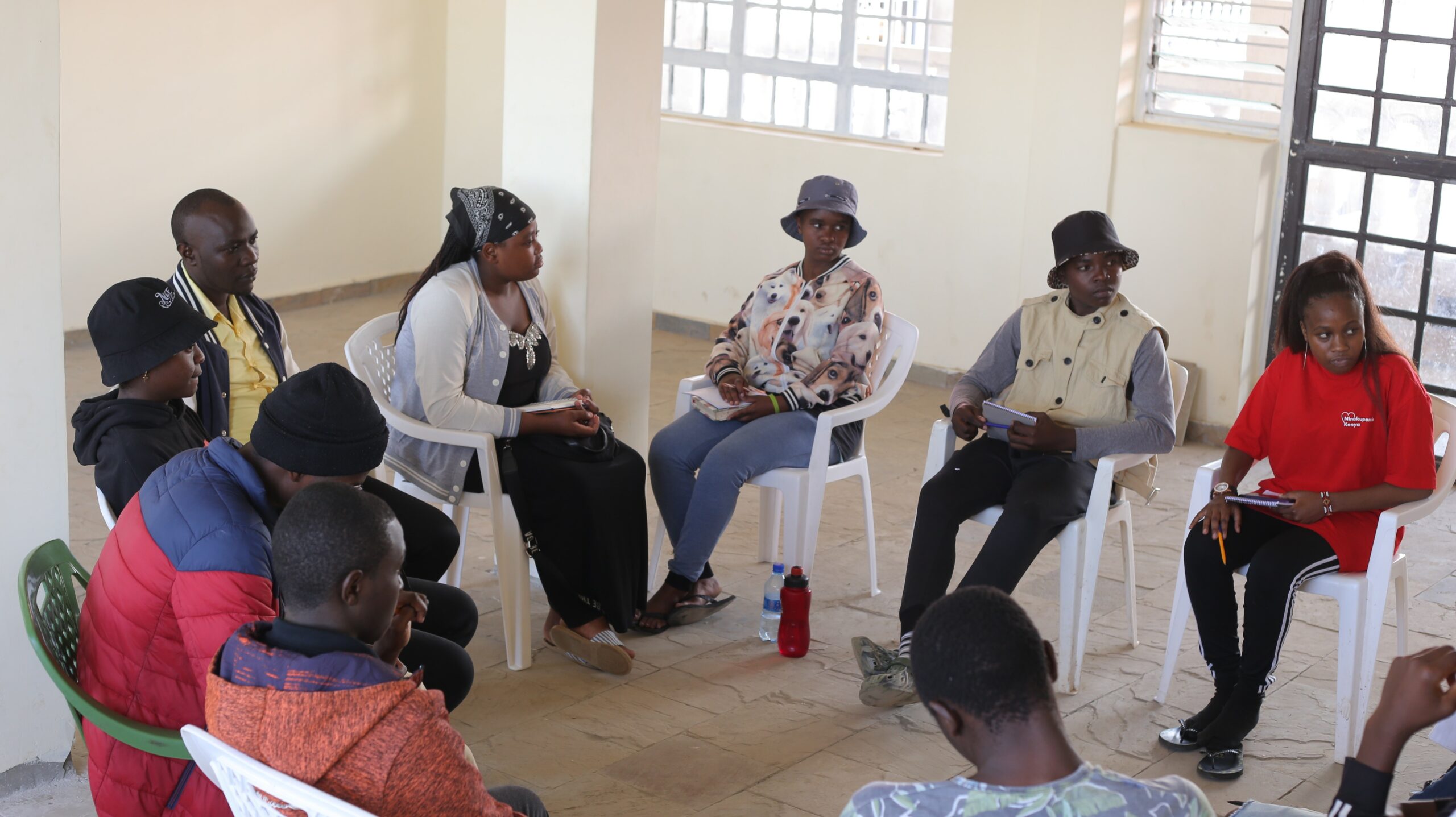
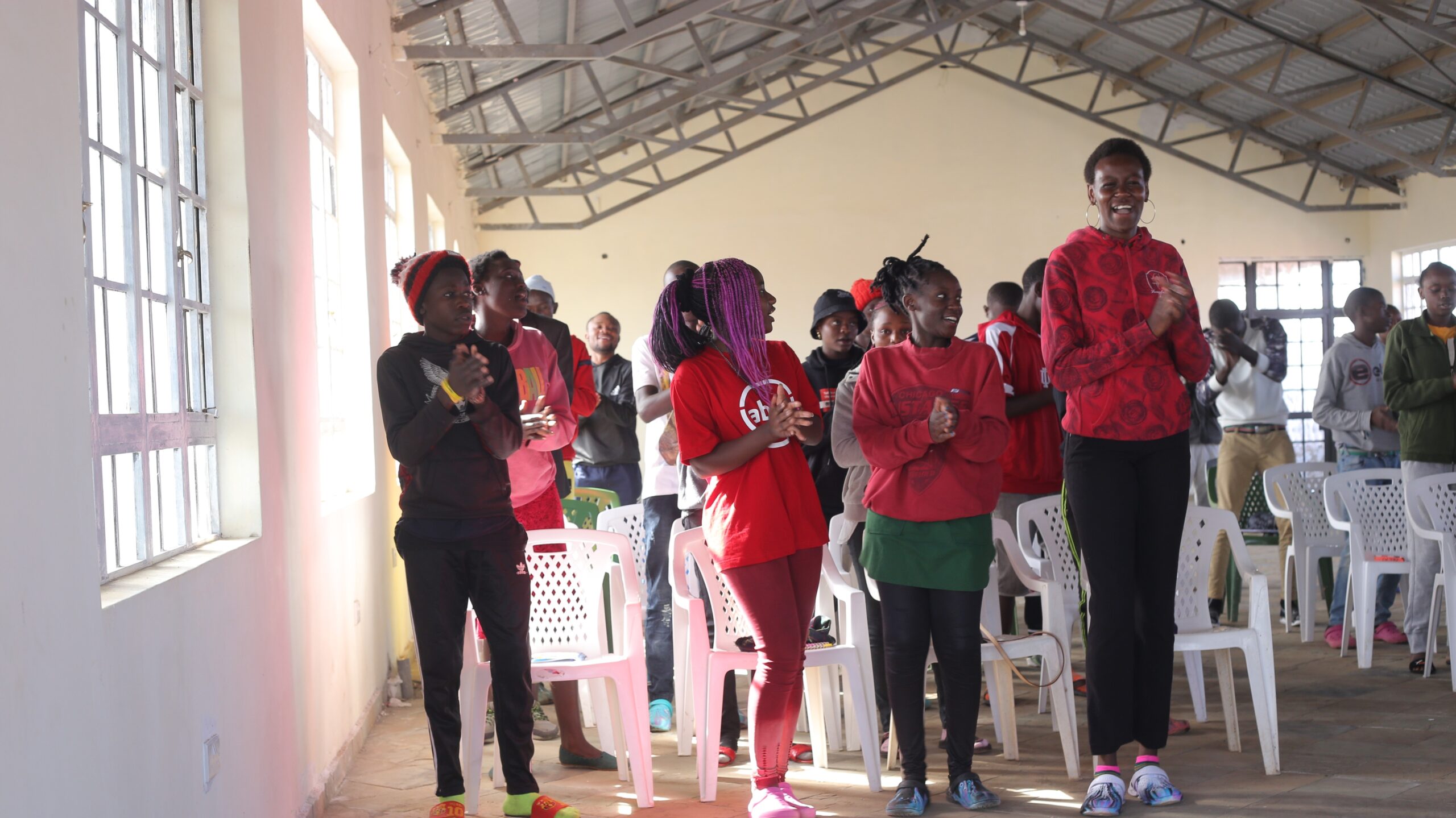
Above: High School students participate in a small group and worship at Breakaway Camp, co-hosted by Kenya Connection.
On the 15th of April 2022, I got a call from my friend, James Were. For those of you who do not know James, he is a soft spoken, eloquent gentleman (except when he is talking about football) who organized this camp I will be telling you about shortly. He is the Development Coordinator at Kenya Connection, the overall organization that was responsible for the breakaway camp.
So… soft spoken James calls me. I was taking my afternoon nap (he doesn’t know that, so don’t tell him) when I heard the phone ringing. I cleared my voice so that I might sound awake. Not sure it worked, but James is a gentleman. He asked me if I would be available to speak to students in high school at a camp he is organizing. I told him I’d check my schedule. I am kidding! I was willing to forgo my afternoon naps for a week.
The camp began on the 17th of April 2022 at Onelife Africa Youth Campus located at East Gate, Kabarak, Nakuru County. The theme was “God Loves You” a simple yet powerful theme from John 3:16. In as much as we know the verse word for word, a reminder of what that scripture means is always welcome and is always relevant.
I joined the camp on the 19th of April. I left Nairobi at 11:30am on a cold drizzly morning. I really enjoyed the trip, more so because I got to nap! 3 hours later, James received me and showed to where I would be staying. He then briefed me on what has been happening and what I was to speak about over a cup of porridge and biscuits which I thoroughly enjoyed. Thank you James! I joined the rest of the team and the students for dinner and got to know some of them.
The camp hosted 60 high school students who were on scholarship through Kenya Connection, many of whom are graduates of Akiba School and have been attending boarding schools in various parts of Kenya. This was a chance to break away from their normal schedule of school and home, to enjoy something out the norm. This was a chance for them to learn and go deeper in their faith through teachings based on the theme.
For many of the students this was the first camp that they attended and they loved the experience. I spoke on 2 topics on 2 different days: A Father’s Love & The call of the Father. The underlying theme of the topics is that there is nothing that can separate you from the love of God and that once you accept that God loves you, regardless of your circumstance, you then find your identity in the father. Once you know who you are in God then the calling of the Father will consequently be identified.
The camp provided a safe space, a comfortable place to sleep, regular meals, and people to talk to and space to be creative. The wonderful team at Onelife provided counselors who would have sessions with the students where they would be free to talk without prejudice. I saw how creative these students were as they sang, danced, recited poetry, and did skits. They were so confident in their abilities, a big part due to the atmosphere at the camp. They also played a lot of games during their time there, which increased their bonding.
The message of God’s love gave them hope, and they hoped team would organize more of these camps. Opportunities such as these leave them hopeful and encouraged and wanting more. What struck me most is that the message they took with them is that they are valued and loved by God no matter what is contrary in their current environment.
FAITH IS….
by Mwangi Kabeberi

[“I feel at home and I have gotten to know new people. We struggle a lot at home and this place is like a break. I am happy here and I am having so much fun.” This was a statement said by Faith, one of students who attended the Breakaway camp. Faith is a tall, bubbly yet soft spoken girl. She was easily the tallest student at the camp. You could not tell she has come from a struggling home because of how she carried herself with confidence, kindness, and wit.
The atmosphere at the Breakaway Camp gave me a sense of happiness and freedom. The students were not shy of expressing themselves in any way and I found that very refreshing. They were bold in asking questions and giving their presentations. You can tell what they are thinking, going through, and struggling with simply because they were free and this enabled the facilitators to effectively reach out to them.
“I play volleyball, most people would assume I play basketball because of my height, but I love volleyball.” I know it is very stereotypical to ask a tall person if they play basketball, but I must admit, I took the bait as I looked up at her towering over me. She has dreams like many of us, and is still figuring herself out like many of us (yes, I am talking about you). One thing she is sure about is that she wants a better future for herself but she is also taking in the present moments.
As a writer there is the temptation to speak authoritatively on what you are writing about so as to teach or reveal some new information to the reader, which is the norm because a writer does their research. However in this case, it is I who was given a lesson, who was taught something and I am happy to share. I learned that the present moments are what shape the outlook of your future.
Faith is… the substance of things hoped for the evidence of things yet seen as Hebrews 11:1. Faith (I am talking about the person now) is living proof of that. Maybe it is because she is called Faith, or simply because we are all meant to live faith out naturally. She did not wallow in despair because of her current situation and neither did her fellow school mates. There was hope and they were living as though the world was at their beck and call. They saw it that way and therefore their future will unfold as such.
This Breakaway Camp is what these students need. A chance to make them feel they are enough. They can and will make a difference in the world they live in. Your support is what made this happen and should you want to continue making this a reality for these students, please reach out to Dave and Lucy Chaves of Kenya Connection.
Until next time…

